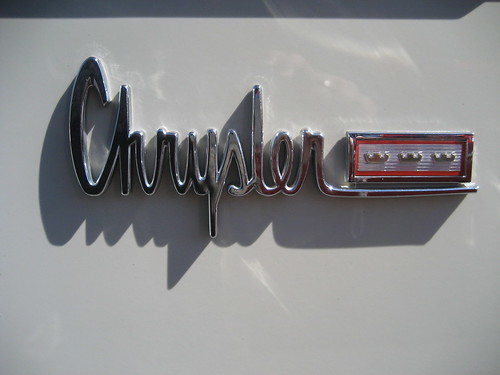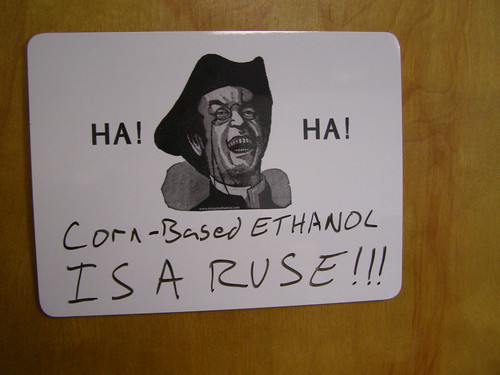Friday, April 24, 2009 – ISSN 1529-1057
Public Meeting on IntelliDriveSM Proof of Concept (POC) Results and Findings – May 19
The US Department of Transportation would like to invite you to the upcoming Public Meeting on IntelliDriveSM Proof of Concept (POC) Results and Findings, which will take place on May 19 at the Sheraton Detroit Novi in Novi, Michigan. POC testing resulted in a number of interesting findings, which will shape the coming activities on the IntelliDriveSM program. Key POC participants from government and industry will discuss the testing that took place and present their findings, recommendations, and lessons learned at this meeting, as well as the next steps for the IntelliDriveSM program and the Michigan testbed. The results should also be of interest to industry representatives from the automakers and makers of after-market devices; federal, state, and local transportation officials; system integrators; information service providers; and university researchers. The event is free, however registration is required for participation. For more information on the meeting or to register, click here or contact Chris Lane at clane@itsa.org.
AVIATION
1) FAA’s Bird Strike Database Goes Public
Link to ABC News story:
http://abcnews.go.com/Travel/story?id=7419909&page=1
Link to database: http://wildlife-mitigation.tc.faa.gov/public_html/index.html#access
2) US Airways Rejects PETA Seal Hunting Ad
Link to story in the Phoenix Business Journal:
http://phoenix.bizjournals.com/phoenix/stories/2009/04/20/daily66.html
Link to further information from People for the Ethical Treatment of Animals:
http://blog.peta.org/archives/2009/04/us_airways_peta.php
CAMERAS
3) In Arizona, Cameras that Nab Speeders Record a Murder, Too
Link to story in The Christian Science Monitor:
http://www.csmonitor.com/2009/0424/p02s06-usgn.html
ELECTRONIC TOLLING
4) Minnesota Rips Illinois Tollway About Drivers It Says Were Unfairly Ticketed
Attorney general demands agency update car registration data.
Link to story in the Chicago Tribune:
http://www.chicagotribune.com/news/local/chi-minnesota-illinois-tollway-2apr24,0,1750341.story
Link to news release from the Minnesota Attorney General:
http://www.ag.state.mn.us/Consumer/PressRelease/090424FaultyTollway.asp
GPS / NAVIGATION
5) Guide Dog GPS Device Up for Award
Link to BBC News story:
http://news.bbc.co.uk/2/hi/uk_news/wales/8015296.stm
6) GPS in Cars Can Save Time and Money
Link to column in U.S. News & World Report:
http://www.usnews.com/blogs/daves-download/2009/04/23/gps-in-cars-can-save-time-and-money.html
Link to news release from Navteq:
http://www.navteq.com/webapps/NewsUserServlet?action=NewsDetail&newsId=724&lang=en&englishonly=false
MARITIME
7) Nortel Reporting System Helps Protect Endangered Whale
Link to story in Washington Technology:
http://washingtontechnology.com/articles/2009/04/17/nortel-system-looks-to-protect-endangered-whale.aspx
OTHER
8) San Jose, California Street Lights Get Smarter
Link to story in Fortune:
http://money.cnn.com/2009/04/24/technology/street_lights_echelon.fortune/?postversion=2009042412
SAFETY / SECURITY
9) Digital IDs Make Clearing Customs Easier for US Citizens Traveling Abroad
Link to story in USA Today:
http://www.usatoday.com/travel/flights/2009-04-23-fastentry_N.htm
10) Feds Turn to ‘Brain Music’ to Boost Emergency Worker Performance
Link to story in Wired:
http://blog.wired.com/defense/2009/04/musical-mind-co.html
SPACE
11) NASA Astronaut Says He Will Twitter from Space
Link to story in Computerworld:
http://www.computerworld.com/action/article.do?command=viewArticleBasic&articleId=9132051
TELEMATICS
12) Toyota Plans ‘G-Book’ Telematics Service in China
Link to story on Tech-On:
http://techon.nikkeibp.co.jp/english/NEWS_EN/20090423/169207/
TRANSIT
13) Los Angeles MTA Approves Spanish Translation of Gold Line
Link to story in the Los Angeles Times:
http://latimesblogs.latimes.com/lanow/2009/04/mta-approves-spanish-translation-of-gold-line.html
14) New Report Cites Nation’s ‘Transit Innovations’
Link to story in Progressive Railroading:
http://www.progressiverailroading.com/news/article.asp?id=20253
Link to report from the Environmental Defense Fund:
http://www.edf.org/page.cfm?tagID=38941&redirect=transit
15) iPhone App Showdown: Battle of the CTA Bus Trackers
Link to story on ARS Technica:
http://arstechnica.com/apple/reviews/2009/04/iphone-app-showdown-battle-of-the-cta-bus-trackers.ars
TRAVELER INFORMATION / TRANSPORTATION MANAGEMENT
16) New Traffic Operations Center Opens for Western Australia Police
Link to story in The West Australian:
http://www.thewest.com.au/default.aspx?MenuID=77&ContentID=137946
VEHICLES
17) Vanity Plates Catch ACLU’s Eye
Link to story in The Denver Post:
http://www.denverpost.com/breakingnews/ci_12213302
News Releases
1) Speed Enforcement: Make Roads Safer and Increase the Number of Valid Reads
2) Cyprus Airport Guide Launched by Creators of the Successful Spanish Airport Guide
Upcoming Events
5th International Driving Symposium on Human Factors in Driver Assessment, Training, and Vehicle Design – June 22-25 – Big Sky, Montana
http://ppc.uiowa.edu/driving-assessment/2009/
Friday Bonus
Don’t worry…this does not smell like you think it does. Take a closer look.
http://commercial-archive.com/n1rv4n4g8/2008/octjpgs/NED_BAONTV_busreklames.jpg
Today in Transportation History
1834 – 175th anniversary of the charter of the Long Island Rail Road.
http://www.mta.info/lirr/Video/175thAnniversary/
=============================================================================================
The Transportation Communications Newsletter is published electronically Monday through Friday.
To subscribe send an e-mail to: TCNL-subscribe@googlegroups.com
To unsubscribe send an e-mail to: TCNL-unsubscribe@googlegroups.com
TCN archives: http://groups.yahoo.com/group/transport-communications
Questions, comments about the TCN? Please write the editor, Bernie Wagenblast at i95berniew@aol.com.
© 2009 Bernie Wagenblast







